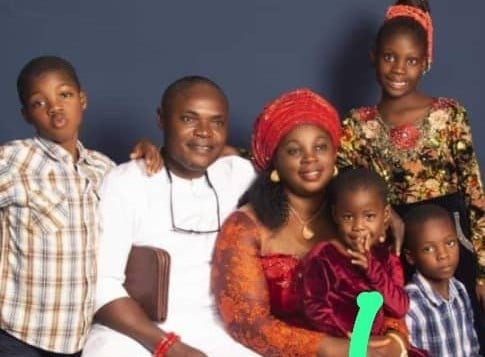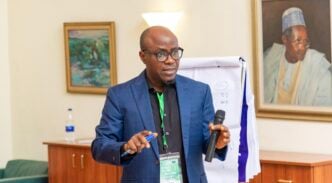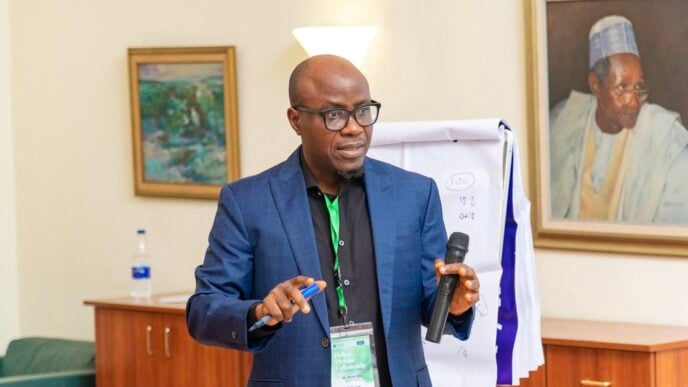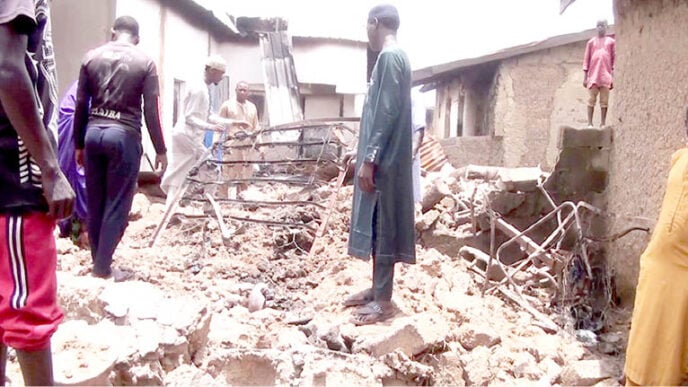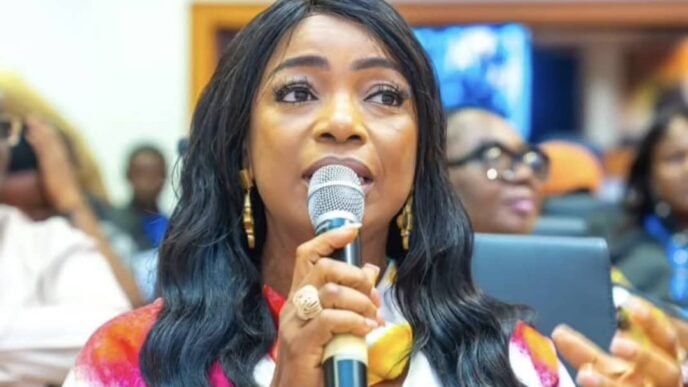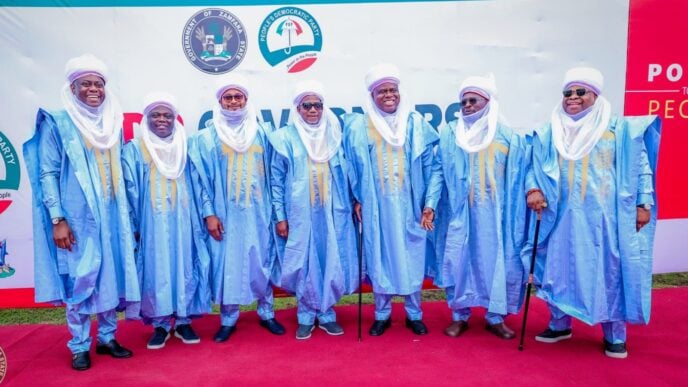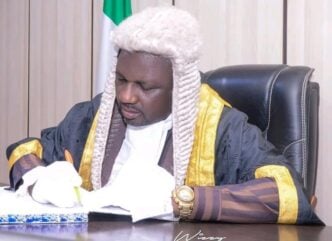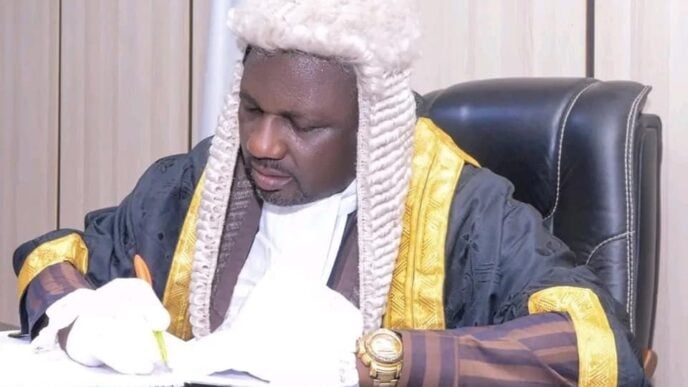Ugwu and his family
BY ARINZE CHIJIOKE
One year after four-year-old Zinachukwu Ugwu was allegedly murdered by a co-tenant in their house at Umunwanwa, a quiet village in Nsukka, Enugu state, her family is still waiting for justice.
The family has accused the Nigerian Police Force of mishandling the case and allowing the wheels of justice to grind too slowly. What was supposed to be an investigation into a brutal killing has instead become a harrowing story of alleged extortion, negligence, and trauma.
At 10 p.m. on Sunday, August 18, 2024, Ndubuisi Ugwu, a lecturer at the Federal University, Oye-Ekiti, was on a video call with his family. As the call was about to end, his youngest daughter, Zinachukwu, fondly called Zina, asked for a kiss. He smiled and blew her one.
Advertisement
It would be the last time he saw her alive. Earlier in the call, Ugwu had shown her a pink bicycle he had just bought.
“The last time I visited, she begged to return with me to Ekiti,” he recalled. “I told her she had to stay back and focus on school. She asked for a pink bicycle instead, and I got it.”
Ugwu had intended to return home that same day. But his travel plans were delayed after the wife of a colleague, whose car he usually joined for the trip, celebrated her birthday. He wished he hadn’t changed his plan.
Advertisement
Zina, the last of four children, lived with her mother and siblings in one of two flats on the top floor of a two-story building owned by one Emeka Onyishi in Umunwanwa, Nsukka.
A NIGHT OF HORROR
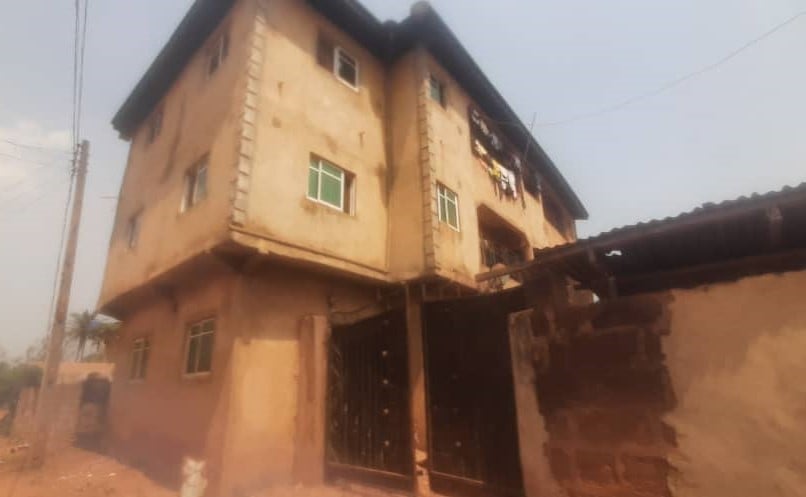
At about 11 p.m. that same night, Loveth, Zina’s mother, heard a loud bang at the door. She said their co-tenant, 30-year-old Nweke Chukwuemeka, was trying to force his way into their apartment. Earlier that night, Nweke had attempted to break into two other flats but was repelled.
“I called my husband and told him Nweke was trying to break in again,” Loveth said. “He asked me to stay calm and said he would try to reach the landlord. Later, he called back and told me the landlord wasn’t picking.”
Advertisement
Following her husband’s advice, she turned off the light in their room and waited. Moments later, Nweke was said to have broken into the apartment and begun destroying property. Loveth fled the room with three of her children, but Zina, still asleep, was left behind.
Nweke found her and was said to have carried her to the staircase and held her there with a knife in his hand.
Downstairs, Loveth screamed for help. Zina also cried out, but no one intervened. Neighbours and other tenants watched in horror, but fear of Nweke’s weapon kept them frozen. The landlord’s wife had run to alert her husband, but it was too late.
“Nweke threatened to kill anyone who tried to stop him,” Loveth recounted. “He slit Zina’s throat, and she bled to death right in front of everyone. Afterwards, he opened our gas cylinder and threatened to set the house ablaze.”
Advertisement
Police arrived minutes later and arrested him. Zina was already dead.
A HISTORY OF RED FLAGS IGNORED
Advertisement
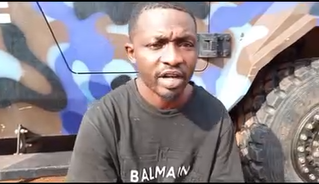
Residents say the tragedy could have been avoided.
Interviews with tenants revealed that Nweke had a reputation for erratic, dangerous behaviour. He was known for using hard drugs and had been dismissed from his job as a market security guard in a local market for frequent altercations. When he moved into the compound in 2021, he didn’t introduce himself, unlike every other tenant.
Advertisement
“He once moved his belongings outside and began screaming without reason,” said Janeth James (not her real name), a tenant who has been in the apartment since 2018. “The landlord and landlady helped him pack everything back.”
Several tenants reported Nweke’s behaviour to the landlord, but he took no action. When Ugwu complained, Onyishi reportedly told him to move out if he wasn’t comfortable.
Advertisement
Shockingly, after his arrest, Nweke allegedly confessed that the landlord had paid him N1 million to kill Zina. The landlord denied the claim; this reporter could not independently verify the allegation.
‘BRIBERY AND INTIMIDATION’
Ugwu further alleged that the landlord tried to bribe him with N500,000 to remove his name from the case.
“The offer was made in front of his brother, Dr. Augustine Onyishi, his lawyer, Barr. Augustine Aro, and my brothers, Barr. Ikechukwu Okenyi and Mr. Augustine Azoka,” Ugwu said. “He said he would pay in cash.”
When Ugwu refused, the landlord’s brother reportedly told him the case would not go anywhere, with or without his cooperation.
So far, the suspect has only been arraigned and remanded in police custody — which leaves Ugwu and his family uncertain about the fate of the case.
According to Ugwu, the biggest obstacle to justice hasn’t been the law; it has been the police. From the outset, he alleged that officers demanded money for every action. Instead of investigating the murder, they allegedly turned it into a money-making opportunity.
Ugwu named several officers from the homicide unit at the State CID Enugu, and the special investigation bureau as the key individuals who demanded money at various stages of the investigation.
According to him, the extortion began at the Nsukka Police Division, where the first investigating police officer (IPO) discouraged him from mentioning the landlord whom he suspected to be complicit in his official statement.
“He approached me and said I should focus solely on the murderer and leave out the landlord,” Ugwu said. “I suspect he had already been compromised.”
The unprofessional conduct didn’t end there. The IPO allegedly demanded N50,000 to facilitate the transfer of the case to Enugu, claiming it was for fuel.
“As a grieving father, I couldn’t believe I was being asked to fund a murder investigation,” Ugwu said.
Worse still, a key witness, Ferguson Nweke, who voluntarily agreed to testify, was detained and only released after paying N25,000 in what Ugwu described as an illegal bail demand.
“That incident scared off other witnesses. Most of the tenants in the compound fled, afraid they might be next,” he said.
At the State CID in Enugu, matters deteriorated further. One Chinedu Okike, who took over the case, allegedly asked Ugwu what his “interest” was in the matter — an odd question, given the circumstances. Ugwu said he became alarmed when Okike appeared to downplay the involvement of the landlord and showed a disturbing familiarity with members of the landlord’s family.
The situation escalated when Ugwu said he witnessed one Ifeanyi, Okike’s colleague, allegedly instructing the suspect, Chukwuemeka Nweke, to remove a critical part of his statement — specifically, the allegation that the landlord paid him N1 million to carry out the murder.
When Ugwu confronted him, Ifeanyi dismissed him and his witness from the interrogation room, allegedly telling him, “You are in no place to teach me my job.”
Ugwu said the landlord was released without a thorough investigation. Ugwu only managed to get him re-arrested after personally petitioning the commissioner of police. Following this, Okike was removed from the case.
Ugwu said Kenneth Ezugwu, the officer who later took charge, continued the pattern of extortion. According to Ugwu, Ezugwu asked him to pay N200,000 to “fuel the car, buy airtime, and settle his boss and other officers” involved in the case.
“He insisted on a cash payment. When I told him I didn’t have that kind of money, he called me stingy and became hostile from then on,” Ugwu recalled.
Even more painful, Ugwu said he had to pay N50,000 in cash to secure the release of his daughter’s corpse for burial, with Ezugwu claiming the money was needed to “settle” officials at the commissioner’s office.
As the case neared prosecution, Ezugwu allegedly told Ugwu that the police had established a clear case of conspiracy and murder but warned that if Ugwu did not provide him with an unspecified amount of money, the charges would be downgraded.
“He told me the landlord would only be charged with negligence unless I paid. He said I was about to ‘spoil my case’ because I refused to give him money,” Ugwu said.
Ugwu said these repeated demands and threats have deeply eroded his trust in the justice system.
POLICE DENIALS, LEGAL EXPERTS REACT

When contacted, Daniel Ndukwe, the police public relations officer (PPRO) for Enugu state, said he was unaware of any extortion, but confirmed that the suspect had been arraigned and remanded.
He added that the suspect confessed to acting alone, under the influence of methamphetamine, hemp, and alcohol. Ndukwe also revealed that the suspect admitted to being a member of the Vikings Confraternity and had previously murdered a rival cult member in Jos, Plateau state.
Recovered from his home were a knife, substances suspected to be hemp, and what appeared to be a charm.
Ndukwe quoted Kanayo Uzuegbu, who was commissioner of police at the time, as describing the murder as “barbaric and unthinkable” and assured the public that a diligent investigation would follow.
But Ugwu said those promises have not been fulfilled.
Joy Ezeilo, executive director of Women’s Aid Collective (WACOL), said it is unlawful and unethical for the police to demand money from victims to investigate crimes.
She referenced section 4 of the Police Act 2020 which mandates the police to protect lives, investigate crimes, and uphold the law, adding that under no circumstance should a murder victim’s family be asked to fund an investigation.
Under section 66(1) of the Police Act and Police Service Commission guidelines, officers are also required to act fairly, avoid bias, and not solicit or accept bribes.
LANDLORD DENIES KNOWLEDGE OF SUSPECT’S BEHAVIOUR
When contacted, the landlord acknowledged the murder in his compound but denied having any prior knowledge of the suspect’s violent tendencies.
“I have a barrister who handles tenants in the compound,” Onyishi said. “He collects the rent and takes his commission. He was the one who admitted Nweke. I didn’t know him personally because I’m usually busy at my store.”
Onyishi said he was not present at the compound during the incident but claimed he immediately alerted security operatives after receiving a call about the attack.
“Nweke even tried to harm my children, but they managed to resist him,” he added.
Onyishi, however, declined to address allegations that he had attempted to bribe the victim’s father to avoid being linked to the case. He also did not respond to claims that several tenants had previously reported Nweke’s disturbing behaviour to him. Instead, he referred this reporter to one Onyebuchi Kenneth, (a relative) who claimed to have knowledge of the incident.
In his response, Kenneth denied that Onyishi offered any bribe and questioned the allegations by the victim’s father.
“If Ugwu truly felt unsafe or suspected the landlord of any wrongdoing, he had every right to leave the compound or report to the police when he noticed Nweke’s actions,” Kenneth said. “The landlord also lived in the same compound. His family was attacked that night too, but they were able to resist.”
Kenneth claimed that police investigations absolved him of any direct role in the crime, saying he was only charged with negligence and later granted bail, as he was not implicated in the murder as alleged.
‘WE’RE STILL WAITING’
For the Ugwu family, life has been upended. They can no longer afford to rent a house and now rely on relatives for shelter. Zina’s pink bicycle remains unused, a painful symbol of her absence.
“Whenever I see a child her age, I think of her,” Ugwu said. “The incident has shattered our mental health. My wife, who witnessed the killing, is still traumatised. Our children are always on edge; the slightest noise sends them running.”
“They can’t go to school. We’re struggling to survive. We need help to rebuild our lives.”
On January 28, 2025, the family petitioned Kayode Egbetokun, the inspector-general of police. They demanded that all responsible parties be investigated and held accountable. They also requested that justice be served in due time to put an end to the delay that has prolonged their suffering. They said that no amount of money could replace Zina.
“Our hope is that justice will prevail, and the officers who extorted us instead of doing their jobs will be sanctioned,” Ugwu said.
The family copied the petition to the commissioner of police, Enugu state, senate and house committees on human rights, and the National Human Rights Commission.
As the months drag on, so does the family’s wait for justice. The question remains: how many more victims will be failed before the system changes?
